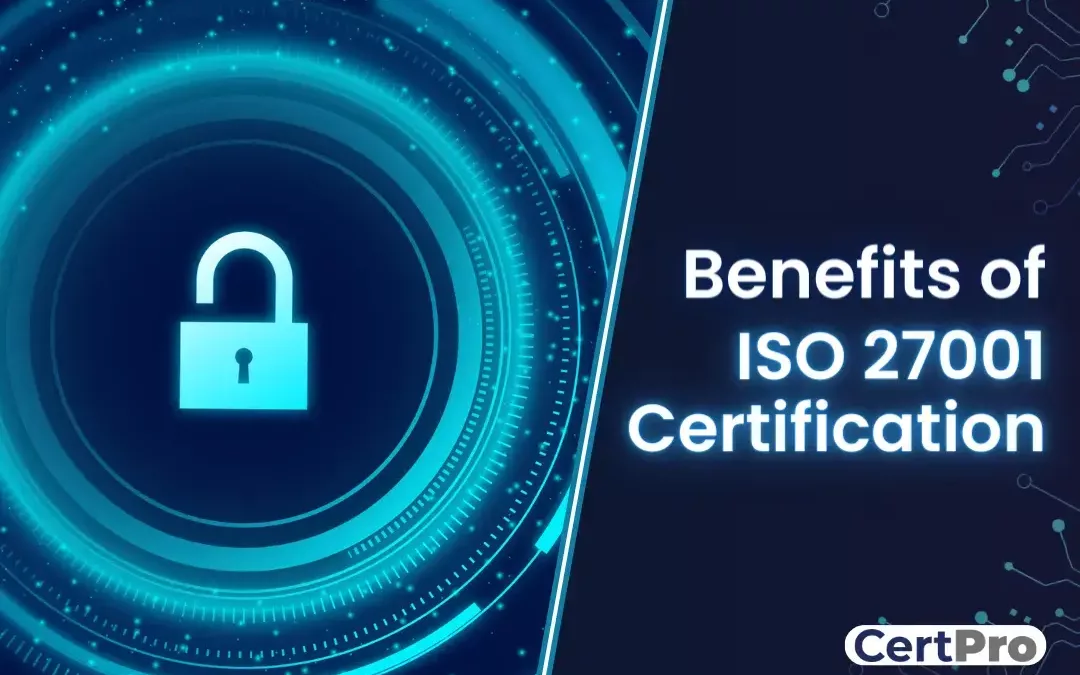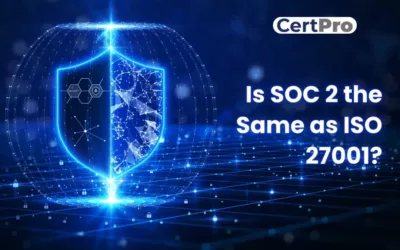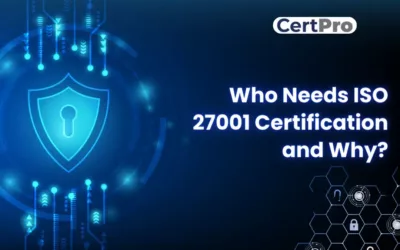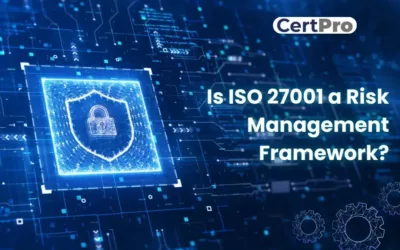The international standard ISO 27001 certification for information security management is generally accepted. It defines a methodical strategy for managing sensitive data to keep it secure from unauthorized access, use, disclosure, interruption, modification, or destruction, involving people, procedures, and IT systems. Data security has become a crucial concern in today’s age when organizations are becoming more dependent on technology to conduct business. ISO 27001 benefits most firms in many ways. Organizations can reduce the risks of data breaches, cyberattacks, and other security concerns with the aid of ISO 27001 accreditation.
We shall examine ISO 27001 certification benefits in this article. This certification can benefit businesses of all sizes and in all sectors, from strengthening customer trust to enhancing their overall security posture.
What is the importance of ISO 27001 certification, and how is it useful?
The ISO 27001 certification is a differentiator for your company and shows other businesses they can rely on you to manage sensitive intellectual property and valuable third-party information assets. There are numerous benefits to ISO 27001. This opens up a plethora of new prospects while shielding your company from exposure to risk.
Setting up an ISMS and applying its processes across the chosen scope inside the organization is necessary for achieving this. This entails developing guidelines and rules for:
- The application of information technology
- Educating employees about using IT tools
- Monitoring the effectiveness of the information systems and reporting any incidents or breaches would help their security measures work better.
- Organizations can research ISO 27001 once the ISMS has been put into place. It is intended to assist enterprises in identifying their security requirements and putting in place safeguards that lessen the possibility of data breaches and the loss of sensitive or personal information.
- Organizations can benefit from ISO 27001 implementation in a number of ways. Let’s get to know the top 10 benefits of ISO 27001.
- It aids businesses in avoiding potentially expensive security breaches. Organizations with this certification can demonstrate to clients, partners, and investors that they have taken precautions to safeguard data in the event of a breach. This can lessen the harm a data leak can do financially and publicly.
Top 10 benefits of ISO 27001:
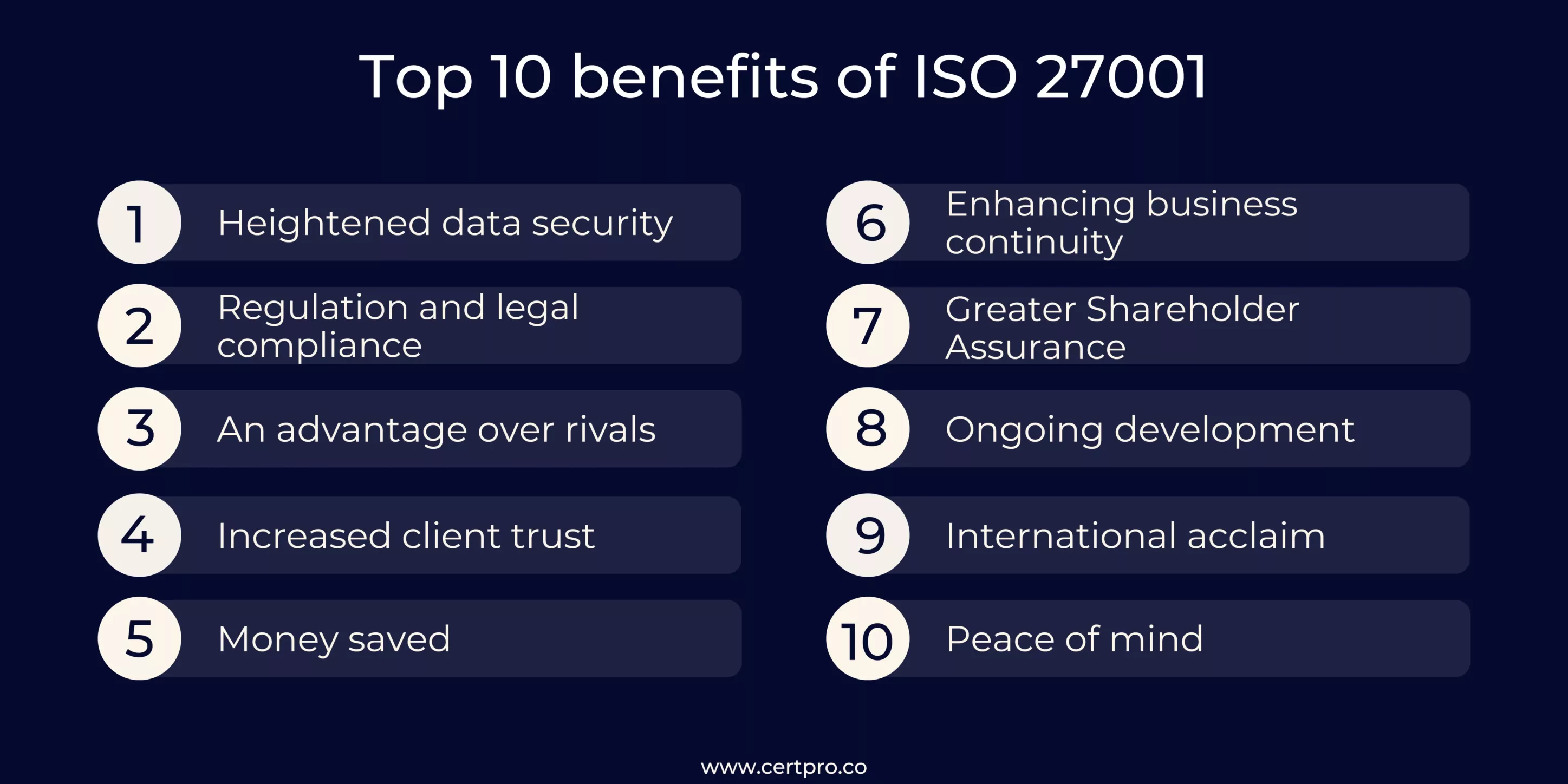
2. Regulation and legal compliance: Data security legislation and regulatory requirements apply to many different businesses. Organizations can achieve these criteria and prevent potential fines and legal action by adhering to ISO 27001 standards. The standard offers a framework for putting into place and maintaining an ISMS that complies with legal and regulatory requirements.
3. An advantage over rivals: ISO 27001 accreditation can give businesses a competitive edge over rivals. Organizations may stand out from rivals and win customers’ trust by showcasing their dedication to preserving sensitive information.
4. Increased client trust: customer anxiety over data security and privacy is rising. By proving their dedication to safeguarding their customers’ private information, organizations can gain customers’ trust by obtaining ISO 27001 accreditation. Increased consumer loyalty and repeat business may result from this.
5. Money saved: Implementing ISO 27001 can assist businesses in identifying possible security threats and addressing them before they turn into expensive security breaches. Organizations can save on remediation expenses, legal fees, and lost revenue by proactively managing information security risks.
6. Enhancing business continuity: Organizations must comply with ISO 27001 and have a documented incident response strategy in place in order to identify, address, and recover from security problems. This aids businesses in reducing the effects of security incidents on their daily operations and enhancing company continuity.
7. Greater Shareholder Assurance: ISO 27001 accreditation can assist businesses in gaining the trust of their constituents, such as clients, suppliers, investors, and regulators. Organizations may earn the trust of their stakeholders and improve their reputation by showcasing their dedication to best practices in information security management.
8. Ongoing development: Organizations must continuously monitor and assess their ISMS in accordance with ISO 27001 to make sure it is still functional and up-to-date. This aids organizations in maintaining a proactive security posture and staying ahead of evolving security threats.
9. International acclaim: A widely accepted standard for information security management is ISO 27001. Organizations can demonstrate their commitment to best practices and enhance their reputation globally by becoming certified.
10. Peace of mind: By implementing ISO 27001, organizations may feel secure in the knowledge that they have taken precautions to safeguard their sensitive data and are ready to respond to eventual security issues. This can improve productivity and foster a more positive work atmosphere by reducing stress and anxiety among management and staff.
Is it obligatory for enterprises to comply with ISO 27001?
FAQ
How can ISO 27001 certification boost client confidence in our company?
Does compliance benefit from ISO 27001 certification?
Can the ISO 27001 accreditation aid in the management of third-party risk?
What advantages does ISO 27001 certification have for small companies?
What are the primary advantages of an ISMS certification?

About the Author
RAGHURAM S
Raghuram S, Regional Manager in the United Kingdom, is a technical consulting expert with a focus on compliance and auditing. His profound understanding of technical landscapes contributes to innovative solutions that meet international standards.
IS SOC 2 THE SAME AS ISO 27001?
In today's digital landscape, ensuring the safeguarding of client data is paramount for businesses. Adhering to recognized compliance standards is vital to meeting this demand. ISO 27001 vs. SOC 2 represent two prominent benchmarks in the realm of data security with...
WHO NEEDS ISO 27001 CERTIFICATION AND WHY?
The esteemed ISO 27001 security framework is designed to evaluate the effectiveness of an organization's Information Security Management System (ISMS) in safeguarding its data. Obtaining ISO 27001 certification is a practical way for a corporation to demonstrate its...
IS ISO 27001 RISK ASSESSMENT VITAL FOR SECURITY MEASURES?
The ISO 27001 standard provides a framework for information security, highlighting the importance of a thorough risk assessment procedure. Organizations use the methodical and complex ISO 27001 risk assessment process to identify and assess information security...

